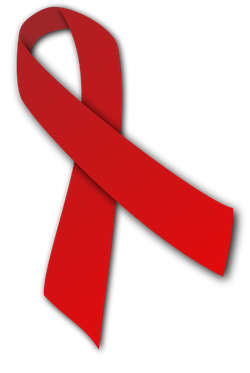Faith-based organizations presented significant input at an April 6, 2016 United Nations civil society hearing in New York City, a prelude to a UN High Level Meeting on HIV in New York on June 8-10.
The World Council of Churches - Ecumenical Advocacy Alliance (WCC-EAA) offered an intervention summarizing key actions world governments must take in order to end AIDS by 2030. WCC-EAA partners also made interventions commenting on government partnerships with faith-based organizations (FBOs), ending stigma and discrimination, funding, patent agreements related to treatment, the need for a new research-and-development framework, and other issues.
Francesca Merico, HIV campaign coordinator for the WCC-EAA, spoke at the civil society hearing, describing five areas in which governments must make a focused commitment: addressing the root causes of vulnerability to HIV, ensuring no one is left behind, eliminating stigma and discrimination, providing sustainable and predictable resources, and creating a clear accountability mechanism for delivering on the agreed-upon commitments.
“Much has been achieved, however, much more remains to be done: 37 million people are living with HIV and 22 million people living with HIV are still not accessing treatment,” Merico stated. “Children are disproportionally left behind. Half of all people living with HIV are unaware of their status.”
Gershom Kapalaula, program officer for HIV and AIDS with the Zambian Network of Religious Leaders Living with or Personally Affected by HIV and AIDS, is also a member of a Stakeholders Task Force established by the president of the UN General Assembly in partnership with UNAIDS. Kapalaula said that the faith-based organizations present at the hearing were sincerely committed to working “for the dignity and rights of people living with HIV, for an attitude of care and solidarity that rejects all forms of stigma and discrimination, for an open atmosphere of dialogue in which the sensitive root causes of HIV and AIDS can be addressed and for a strong advocacy to mobilize all the necessary resources for an effective global response to the pandemic.”
He expressed concern that many faith-based organizations remain on the margins of national AIDS response for a number of reasons, even though evidence shows that FBOs have been, and are, major providers of HIV-related services, particularly to populations that are underserved by governments and other service providers. “The value of partnerships must be measured by the extent to which they contribute to reducing the number of people becoming infected with HIV and to reducing the impact on those people living with or affected by HIV,” he said.
Religious leaders also voiced their concerns regarding stigma and discrimination. Rev. Michael Schuenemeyer, executive director of the United Church of Christ HIV & AIDS Network in the United States, submitted an intervention discussing stigma as a pervasive issue that continues to drive HIV infection rates and gaps in treatment, care and support. “Eliminating stigma is vital to stopping the spread of HIV and ending HIV-related deaths. I am talking about the prejudice, negative attitudes and abuse directed at people living with HIV which remains a significant barrier to effective responses to the HIV epidemic globally.”
Some religious institutions, as well as some people's religious experiences, play a significant role in the proliferation of HIV-related stigma, added Schuenemeyer. “We know, the evidence shows, that the consequences of stigma are wide-ranging and may be experienced because of a person's real or perceived HIV status, sexual orientation or gender identity.”
Astrid Berner-Rodoreda, HIV Policy Advisor for Bread for the World, asked for clarification on the new figures provided in the report by the UN General Secretary which reduce the financial needs by $6 billion (USD) with repercussions on the number of prevented deaths and new infections. She also honed in on access to newer medicines. “We need a new paradigm,” she said. “Patents on medicines have not been the solution in producing affordable medicines. Patents are part of the problem. The High-Level Meeting should clearly call for a new research-and-development framework, otherwise we will not see lifelong treatment for all.”
The WCC-EAA continues to foster a dialogue with pharmaceutical companies to ensure affordable and accessible treatment, particularly for children. Its HIV campaign, “Live the Promise” has specifically promoted comprehensive agreements between companies and the Medicines Patent Pool.
The weeks leading up to the June High-Level Meeting are a crucial time during which the WCC-EAA will continue to support religious leaders and faith-based representatives as they meet with their government representatives to discuss and help draft an effective new Political Declaration, Merico concluded.
“The more we can speak and act together, the better our voices will be heard.”
The Ecumenical Advocacy Alliance, an ecumenical initiative of the World Council of Churches, is a global network of churches and related organizations committed to campaigning together on common concerns for justice and human dignity. Current campaign issues are HIV and AIDS, food security and sustainable agriculture.
The Live the Promise Campaign of the Ecumenical Advocacy Alliance seeks continued priority on the response to HIV and AIDS, the elimination of stigma, and a significant faith-based contribution to the vision of ‘getting to zero’ – zero new infections, zero discrimination, and zero AIDS-related deaths.
-----
More information on the Ecumenical Advocacy Alliance Live the Promise HIV Campaign
Human rights standards must guide response to HIV, WCC urges (WCC press release of 11 March 2016)

